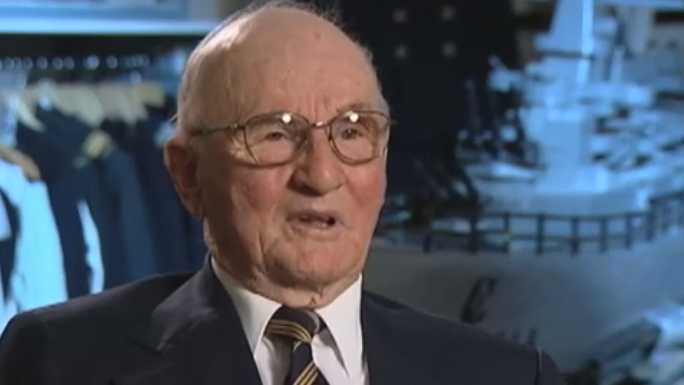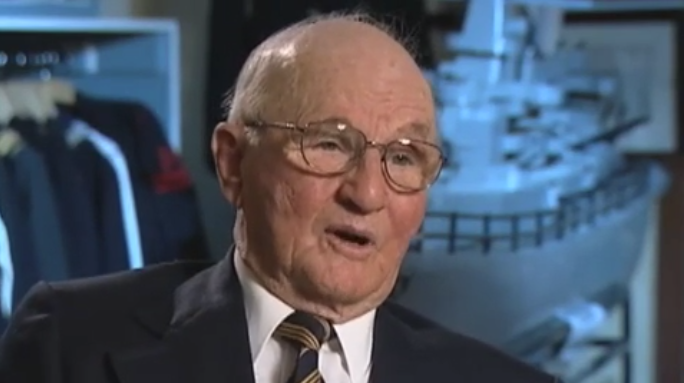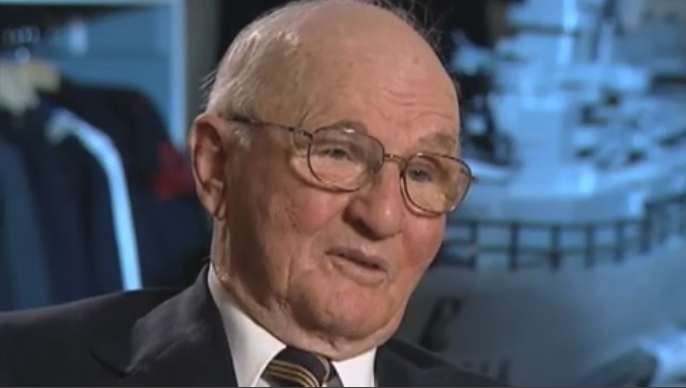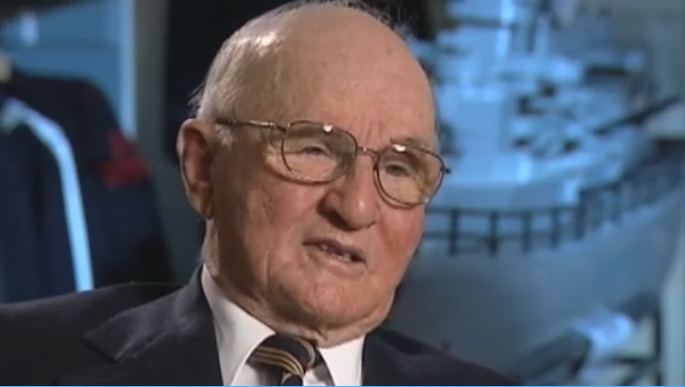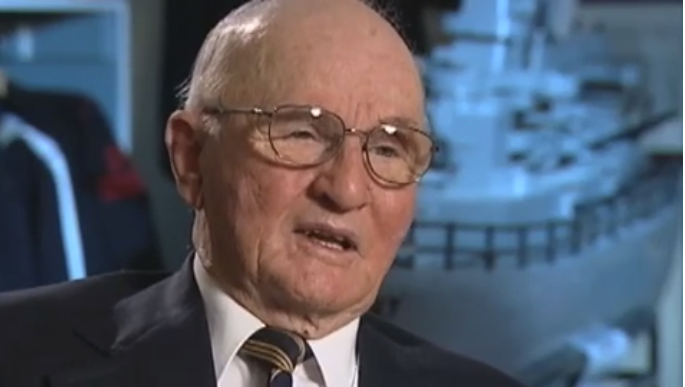D-Day was June the 5, I remember and we were an armoured
division by that time and we were attached to the 4th division
and they couldn't come ashore until there was a,
a beachhead like. And I think it was the first of July,
first part of July I should say that, that we were sent over.
And by that time they, they had a, the beachhead was
about as far as Caen and that's, that's when we got hit by our
own aircraft, at Caen like you know. And we lost a few men,
but the Polish were going through our lines to advance and
and they lost 250, 300 men. Terrible beating, yeah.
They were coming back through after they got hit,
they were coming back through our lines and they said that,
they didn't mind fighting the Germans and they'd fight
the English if they had to. But they had to know which side
they were on and they lost 250 men. So you could see
how they but... no we just, it's a risk of war.
Freddy File, he was the first one of our guys that got hit.
Clark Chesney got wounded and then we lost Lambert
and Gardner and Cawthra and but you just...
You just, you still think about it today, I mean maybe
more so, as you get older. But we were dug in, four feet
in the ground and we had a Polsten 20 mm machine gun
and we were just supposed to protect the supplies and no,
there was guys killed all around us. And there was,
after the bombs were dropped, there was a, the first plane
dropped the bombs and the other guys didn't. If they, if,
the other planes must have realized what was going on.
If they'd have dropped it, of course we wouldn't have been
here anyway. But no, and there was stock piles of ammunition
and jerry cans, and they were flying up in the air and,
and three or four minutes later there was jeeps running in every
direction. There was bodies on the, well people on the, they,
they had a two stretchers on the top of the jeep, like up above
where the drivers at and they were loading them up and taking
them up out. But we couldn't move, we were there
and we were supposed to stay there, but so we didn't.
Nope that's, it was close. It was more scary than,
than if the Germans had done it, because a lot of the people,
next time a plane come over, even if it was your own,
you didn't know whether they were going to, you know,
drop a bomb or something on you. But well it didn't take
long to realize, that, that was just a mistake.
Just absolutely a mistake, yeah.



